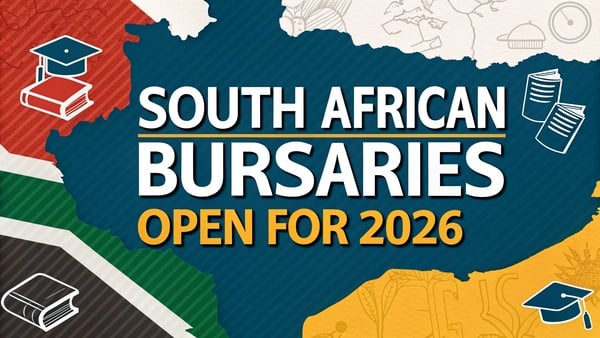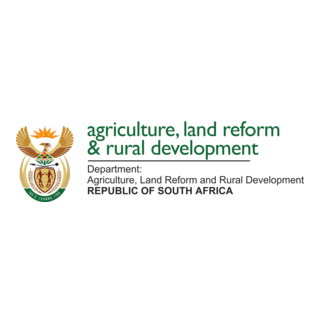South Africa faces growing challenges in climate change, biodiversity, renewable energy, and sustainable development. Because of this, the demand for skilled professionals in environmental and science fields continues to grow.
To support students passionate about protecting the planet and advancing science, many organizations, government departments, and private companies offer Environmental and Science Bursaries for 2026. These bursaries help students fund their studies and often provide valuable work opportunities after graduation.
In this comprehensive guide, we’ll cover:
- ✅ What environmental and science bursaries are.
- ✅ Benefits of applying for a bursary.
- ✅ General requirements.
- ✅ A full list of bursaries for 2026.
- ✅ How to apply.
- ✅ Tips to improve your chances.
- ✅ FAQs for students.
What Are Environmental and Science Bursaries?
Bursaries are financial awards that help students cover their study costs. Unlike loans, bursaries don’t usually need to be repaid, unless there is a work-back condition.
Environmental and science bursaries are designed for students studying in fields like:
- Environmental Science
- Ecology and Biodiversity
- Climate Change Studies
- Geology
- Marine Biology
- Forestry and Fisheries Science
- Renewable Energy and Sustainability
- Water and Soil Science
- Physics, Chemistry, and Biological Sciences
- Earth and Environmental Engineering
Benefits of Environmental and Science Bursaries
Studying science and environmental courses can be expensive. Bursaries provide support such as:
- 🎓 Full or partial tuition coverage
- 📚 Textbook and research allowance
- 🏠 Accommodation and meal support
- 💼 Workplace training or internships
- 🌍 Career opportunities in sustainability and research
General Requirements for Bursaries
Although each bursary has specific rules, most require:
- South African citizenship.
- Matric certificate with good results (especially in Maths, Physical Science, Biology, Geography).
- Proof of acceptance at a recognized university or college.
- Strong academic record.
- Motivation to study science or environmental studies.
- Some bursaries require proof of financial need.
- Certain bursaries may expect students to work back after graduating.
Environmental and Science Bursaries 2026 in South Africa

Here’s a full list of bursaries available in 2026 for students in science and environmental studies.
1. Department of Forestry, Fisheries and the Environment (DFFE) Bursary
- Supports students in forestry, fisheries, environmental science, and marine biology.
- Covers: Tuition, accommodation, books, meals.
- Closing date: Usually September.
2. South African National Parks (SANParks) Bursary
- For students passionate about conservation, biodiversity, and ecology.
- Fields: Nature conservation, environmental management, biodiversity studies.
- Includes training opportunities in national parks.
3. Council for Scientific and Industrial Research (CSIR) Bursary
- Focus: Engineering, physics, chemistry, computer science, and environmental technology.
- Covers: Tuition, books, living expenses, and sometimes laptops.
- Includes internships with CSIR projects.
4. Water Research Commission (WRC) Bursary
- For students in water science, hydrology, sanitation, and water management.
- Often linked with research projects.
- Covers full tuition and research costs.
5. Eskom Bursary Scheme
- While focused on engineering, it also supports environmental science, physics, and chemistry.
- Covers: Full tuition, accommodation, meals, allowances.
- Includes guaranteed work placement.
6. South African Weather Service (SAWS) Bursary
- For students studying climate science, meteorology, atmospheric science, and environmental studies.
- Covers tuition, books, and research costs.
- Includes work-back at SAWS.
7. Mondi Bursary (Forestry and Environmental Sciences)
- For students in forestry, environmental management, and wood sciences.
- Covers full study costs.
- Includes vacation work.
8. Sappi Bursary Programme
- For students in forestry, environmental sciences, and wood technology.
- Provides bursary plus practical training opportunities.
9. Department of Water and Sanitation (DWS) Bursary
- Supports studies in hydrology, water resource management, environmental science, and geology.
- Covers tuition, accommodation, books, and a stipend.
- Work-back requirement with DWS.
10. Mintek Bursary Programme
- Focuses on geology, chemistry, metallurgy, and environmental sciences.
- Covers tuition, accommodation, allowances.
- Students gain research experience in mining and environmental management.
11. National Research Foundation (NRF) Bursary
- Provides funding for science and environmental research.
- Supports Honours, Masters, and PhD studies in scientific fields.
12. Department of Agriculture, Land Reform and Rural Development (DALRRD) Bursary
- Covers students in agriculture, environmental science, veterinary sciences, and natural sciences.
- Provides full funding with allowances.
13. South African Environmental Observation Network (SAEON) Bursary
- Focuses on environmental monitoring, climate change, and ecology.
- Offers bursaries for postgraduate students.
14. PetroSA Bursary Programme
- For students in geology, chemistry, and environmental sciences.
- Covers tuition and living expenses.
How to Apply for Environmental and Science Bursaries
- Find bursaries that match your study field.
- Prepare documents:
- Certified ID copy
- Matric certificate
- University acceptance letter
- Academic transcripts
- Motivation letter
- Proof of income (if required)
- Apply online through official portals or send applications by email/post.
- Track closing dates carefully (most close Aug–Oct 2025).
Tips for Success
- Apply to multiple bursaries to increase chances.
- Write a strong motivation letter linking your career goals to sustainability.
- Keep academic results high.
- Stay informed about climate, environment, and science developments.
- Submit applications before deadlines.
FAQs – Environmental and Science Bursaries 2026
1. Who qualifies for these bursaries?
South African students studying or planning to study in environmental or science fields at a recognized university.
2. Do bursaries cover full costs?
Some cover full tuition, accommodation, meals, and books, while others are partial bursaries.
3. Is there a work-back contract?
Yes, many bursaries require graduates to work for the sponsor for a few years.
4. When should I apply?
Most bursaries open mid-2025 and close between August–October 2025 for the 2026 academic year.
5. Can I apply for more than one bursary?
Yes, applying for several bursaries is encouraged.
Final Thoughts
The future of South Africa depends on skilled professionals who can address climate change, environmental protection, and scientific innovation. By applying for Environmental and Science Bursaries 2026, you can secure financial support for your studies and gain valuable work opportunities.
Whether you dream of becoming an environmental scientist, marine biologist, geologist, climate researcher, or conservationist, there is a bursary for you. 🌍✨
Apply early, stay organized, and use these bursaries to build a future that protects both people and the planet.





Leave a Reply